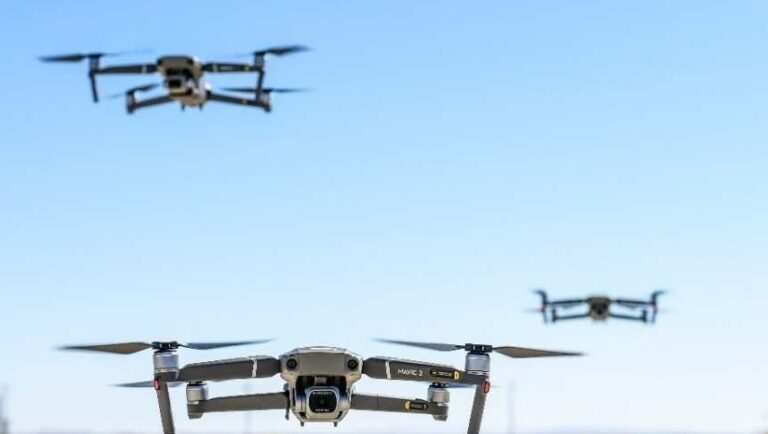
This article was originally published by Radio Free Europe/Radio Liberty and is reprinted with permission.
Norway’s Prime Minister Jonas Gahr Store says foreign intelligence services are behind a recent slew of “unacceptable” drone flights in the country.
Store’s comments on October 19 came after Norwegian police announced the arrest of a Russian who is accused of illegally flying a drone in the Svalbard archipelago in the Arctic region.
Andrei Yakunin, the son of ex-Russian Railways boss Vladimir Yakunin, a close confidant of President Vladimir Putin, was arrested on October 17 in Hammerfest in northern Norway.
“The suspect has admitted flying a drone in Svalbard,” police official Anja Mikkelsen said.
Yakunin has been placed in custody for two weeks, and drones and electronics in his possession have been confiscated, police said.
He was the seventh Russian arrested in the past few days suspected of illegally flying drones or taking photos in restricted areas in the Scandinavian country.
Hours earlier a drone was observed near the airport in Bergen, Norway’s second-biggest city, briefly suspending air traffic.
Bergen Airport, which is near Norway’s main naval base, shut down at around 6:30 a.m. when the area’s air space was closed. It reopened 2 ½ hours later.
“It is obviously unacceptable for foreign intelligence to fly drones over Norwegian airports,” Store told Norwegian public broadcaster NRK.
Along with several other Western nations, Norway has forbidden Russians and Russian entities from flying drones or other aircraft over its territory following Moscow’s invasion of Ukraine.
Breaking that ban is punishable by a three-year prison term, while unauthorized photography can merit a one-year sentence.
Numerous drone sightings have been reported near offshore oil and gas platforms and other Norwegian infrastructure in recent months, said Hedvig Moe, deputy chief of the Norwegian Police Security Service.
“We believe [the drone flights are] carried out in a way that makes it difficult to find out who is really behind it,” but Norwegian authorities suspect Russian involvement in operating unmanned aerial vehicles that “can be used for espionage or simply to create fear,” Moe said.
Combined with explosions on the Nord Stream 1 and 2 pipelines in the Baltic Sea that are being investigated as sabotage, the observations have prompted Oslo to beef up security around strategic infrastructure, including near its oil and gas offshore platforms.
“We are in a tense security-political situation, and at the same time a complex and unclear threat picture that can change in a relatively short time,” Moe said.
The Russian Embassy in Oslo said earlier this week that “hysteria” in Norway was impacting “ordinary tourists,” calling the ban on Russians flying drones “unjustified and discriminatory.”
0 comments :
Post a Comment